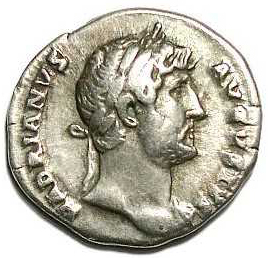|
Replicas of Roman and Celtic metal art which the children will make. The round items are about 9cm wide. The size is given for larger items.
The originals are shown with each item.
Roman items shown first. Click here for Celtic.
|
|
|
ROMAN
METALWORK Version children will make |
Original artefact |
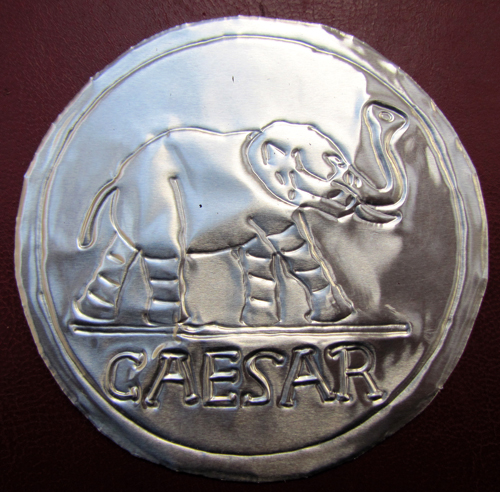 |
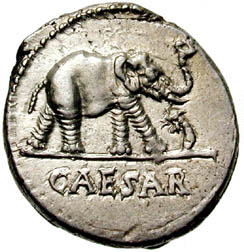 Silver denarius coin of Julius Caesar, struck 49-48BC to celebrate war victories Showing an elephant. 22 million of these coins were made. More on Roman coins |
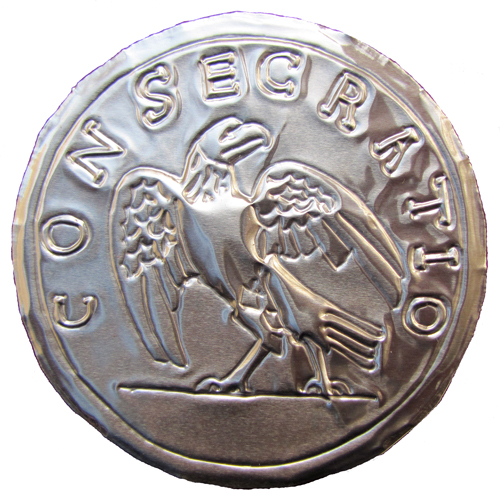 |
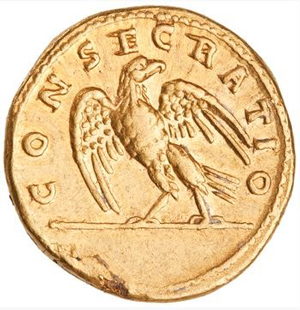 Gold aureus coin made to celebrate Marciana, the sister of Emperor Trajan, becoming a god. AD 98-117 The inscription says 'CONSECRATIO' which means 'consecration'. More on Roman coins |
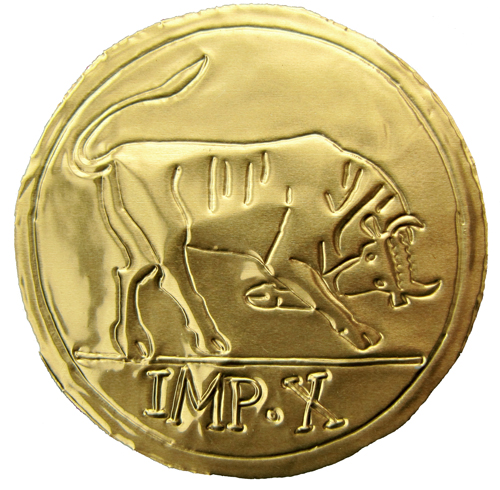 |
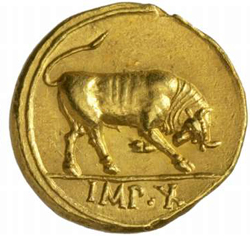 Gold aureus coin of Emperor Augustus showing a bull 17BC Inscription: IMP X, short for IMPERATOR X - this means Augustus had been emperor for 10 years More on Roman coins |
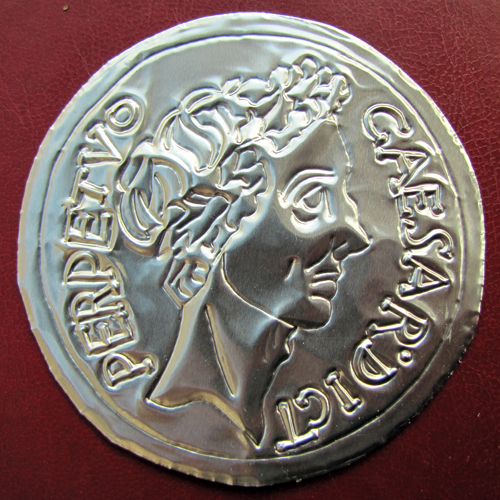 |
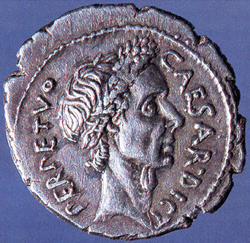 Silver denarius coin of Julius Caesar 44BC, the year he was assassinated Inscription: CAESAR DICT (DICTATOR) PERPETUO Meaning: Caesar dictator forever In 45BC Caesar was declared dictator (ruler of Rome) for the rest of his life. More on Roman coins |
|
|
|
CELTIC
METALWORK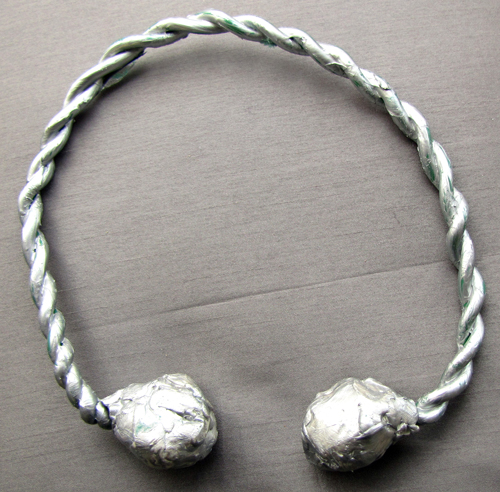 Silver torc made by year 4 child |
 The Great Torc from Snettisham in Norfolk, made 70BC. Now in the British Museum. Made from 8 sets of 8 twisted wires More on torcs 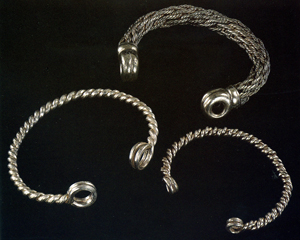 Silver torcs from Snettisham |
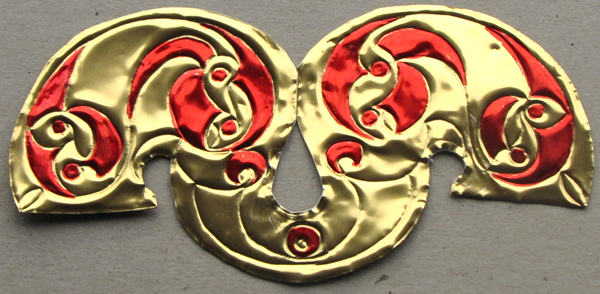 14cm |
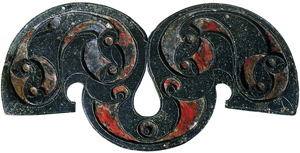 Horse strap mount 50-150AD Found at Polden Hill in Somerset, 1800 Copper alloy and enamel, 15cm long |
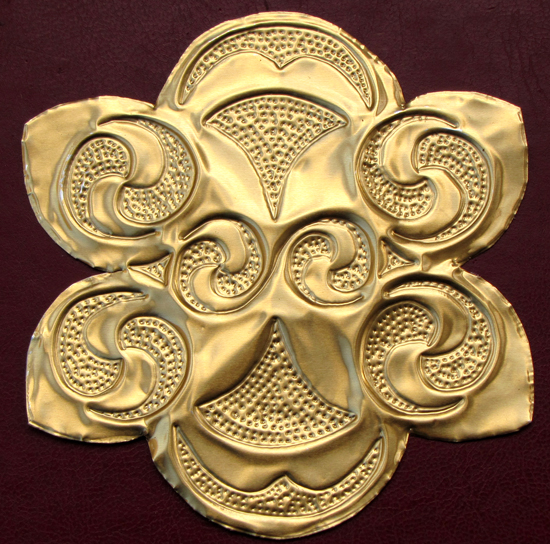 |
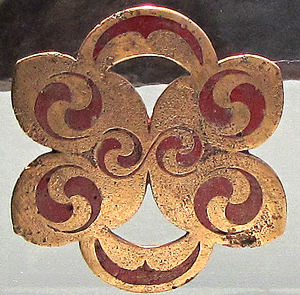 Horse harness mount Bronze and enamel, 7cm 1st century AD Cambridge Museum of Archaeology and Ethnology |
|
11cm |
|
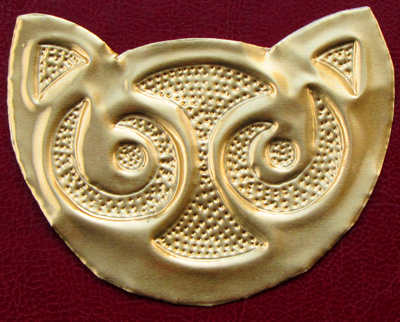 |
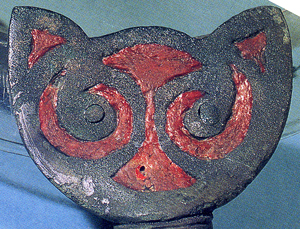 Handle from a bronze bowl, inlaid with enamel In the form of a cat's head Bowl found near Mount Snowdon in Wales, 1974 |
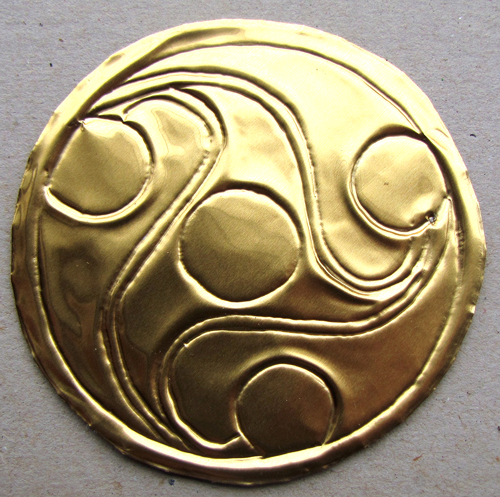 |
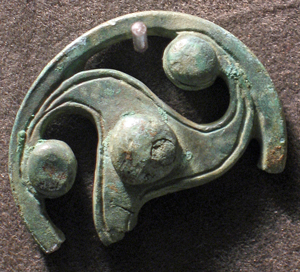 Bronze brooch, triskele style (3 legs) British Museum |
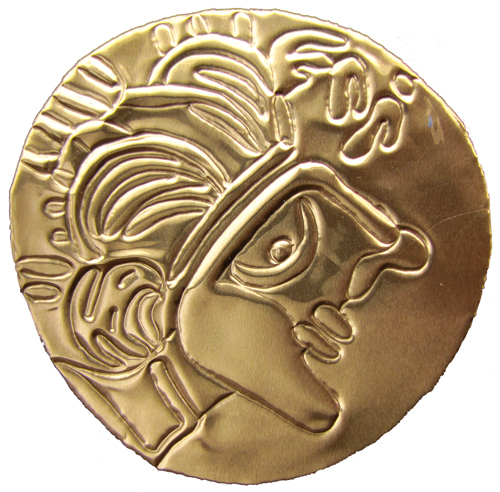 |
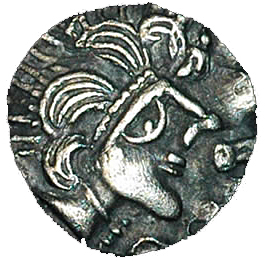 Silver coin of the Trinovantes tribe found north of the Thames 1st century BC to 1st century AD More on Celtic coins |
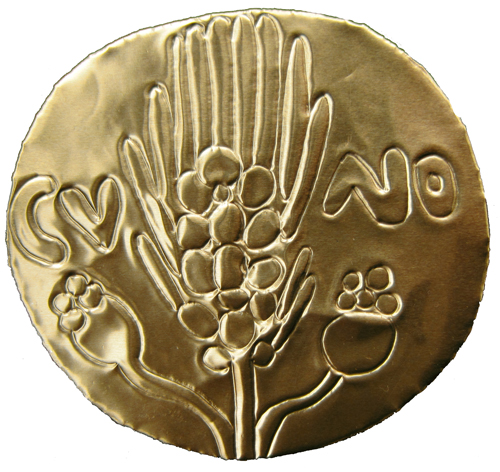 |
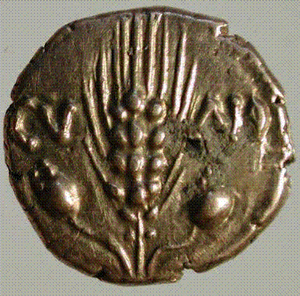 Gold coin of King Cunobelinus, of the Catevellauni tribe Ruled AD10-42 More on Celtic coins |
 |
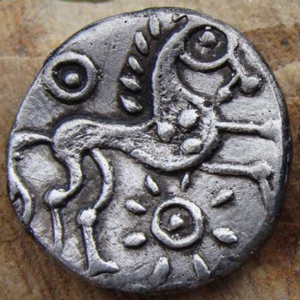 Silver coin of the Iceni tribe from Norfolk, 1st century AD More on Celtic coins |
|
|
|

